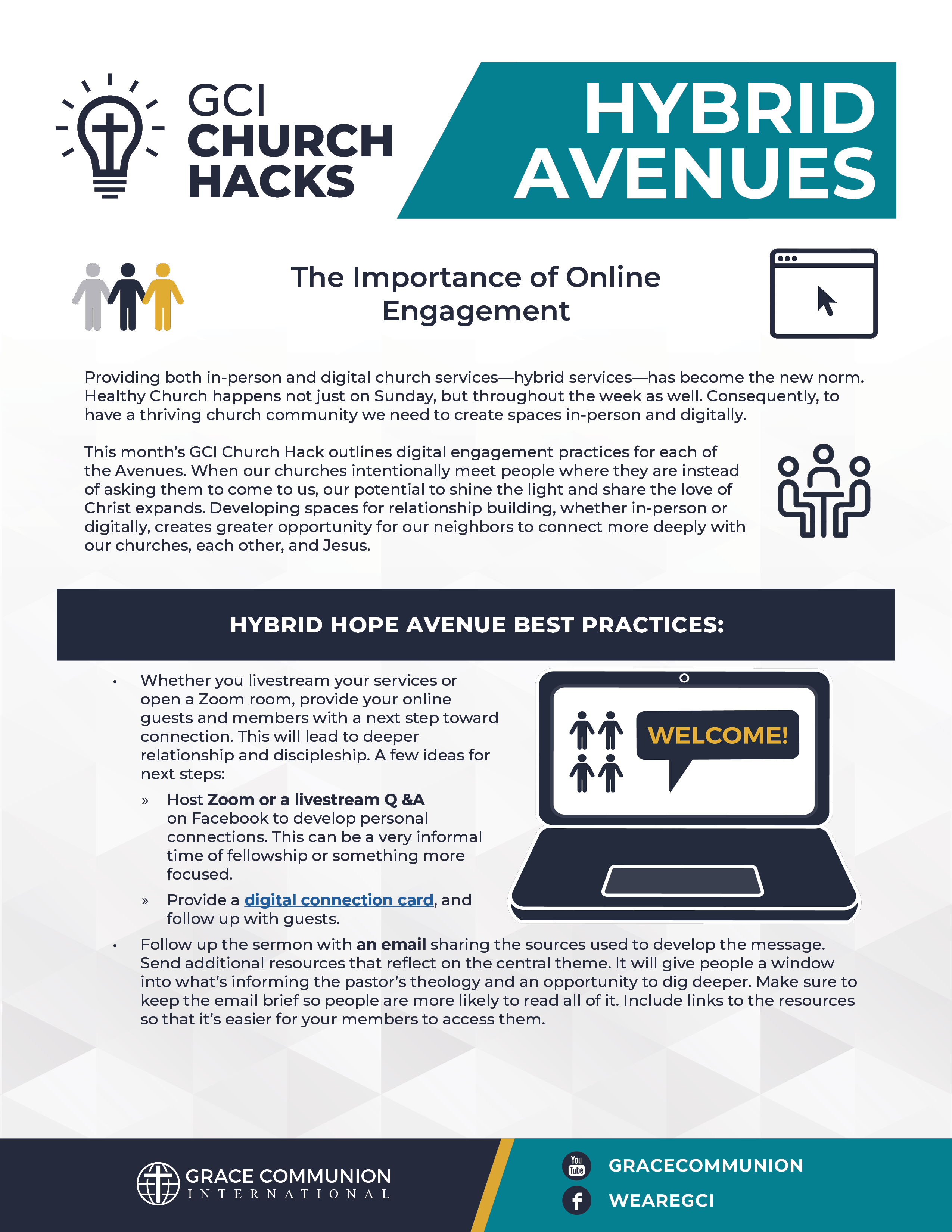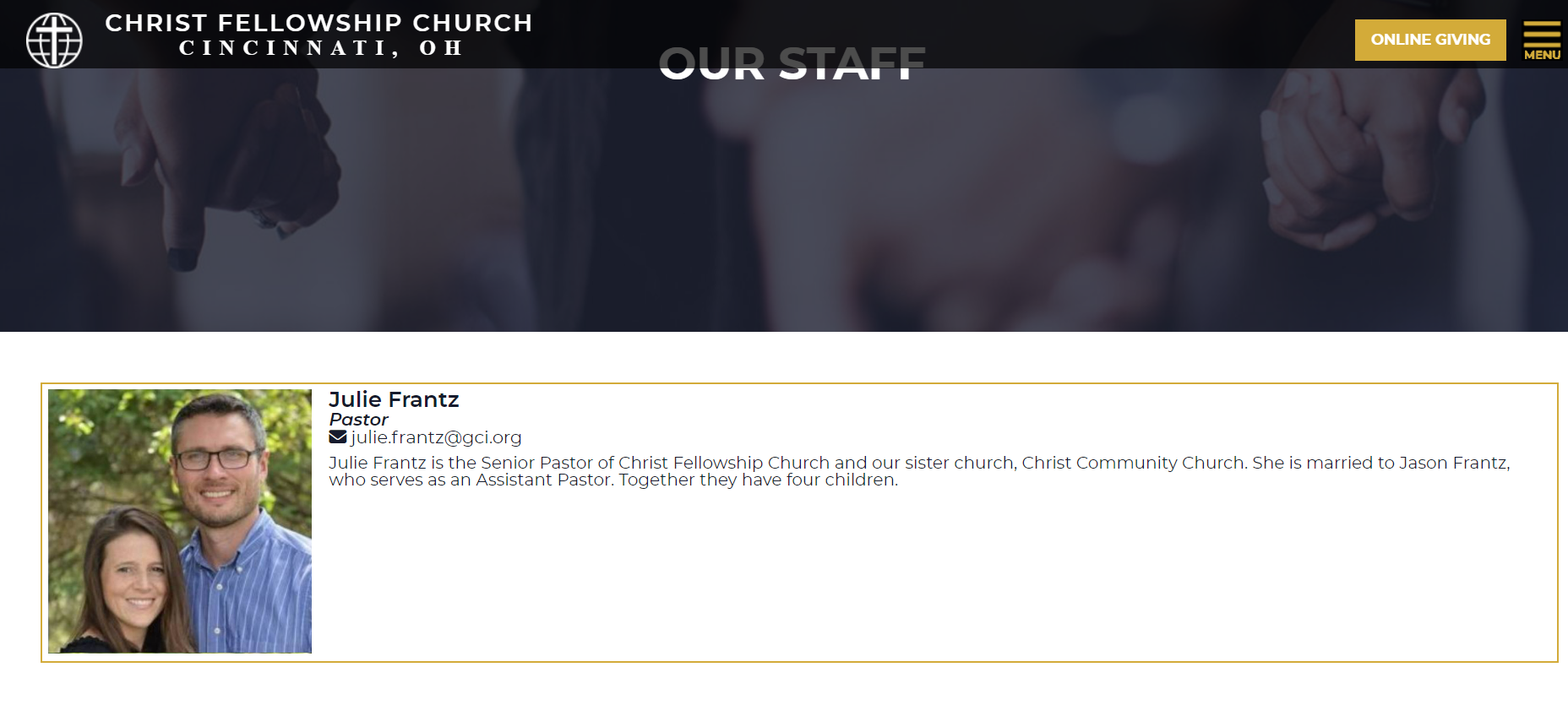Lord of the Harvest w/ Anthony Mullins
Welcome to the Gospel Reverb podcast. Gospel Reverb is an audio gathering for preachers, teachers, and Bible thrill-seekers. Each month, our host, Anthony Mullins, will interview a new guest to gain insights and preaching nuggets mined from select passages of scripture, and that month’s Revised Common Lectionary.
The podcast’s passion is to proclaim and boast in Jesus Christ, the one who reveals the heart of God, Father, Son, and Holy Spirit. And now onto the episode.
Anthony: Hello, friends and welcome to the latest episode of Gospel Reverb. Gospel Reverb is a podcast devoted to bringing you insights from Scripture found in the Revised Common Lectionary and sharing commentary from a Christ-centered and Trinitarian view.
I’m your host Anthony Mullins. And it’s my joy to welcome this month… wait. Wait. There is no guest this month. I’m your guest. It’s sort of like the old Wrigley’s double mint gum commercial. Double your pleasure because I’m going to be your host and also your guest commentator on this month’s Bible passages. That’s right. We’re going to have great fun together, as we unpack the passages from the Revised Common Lectionary.
This is the first time I’ve gone solo. So, it’s a chance for me to say thank you to all of our wonderful listeners around the globe. Just last evening, a pastor told me in a group of other pastors that he listens to Gospel Reverb every week to aid him in sermon preparation. And what a gift it is to know this little podcast is serving a viable purpose in your life in ministry. And I’ll tell you this, we couldn’t do it without you.
So, what’s going on in my life? I ask my guests on Gospel Reverb about themselves, their story. My wife, Elizabeth, and I recently moved to Durham, North Carolina to live in close proximity to our daughters, Sarah and LeeAnna, and our granddaughter, Riley.
And we’ve also felt compelled, we think by Christ and his spirit, to consider planting a new Grace Communion International church in Durham, and it’s in an exhilarating, and it’s a daunting thing to plant a new church, especially in a city where you’ve only lived for a short time. We’ve been here since early December of 2021. We so appreciate your prayers that God’s will be done in our lives.
Vocationally, I continue to serve as a regional director for GCI in the U.S. working with approximately 40 churches and pastors in the Southeast. I’m also a trainer for the GCI coaching program. And on the side, I have the joy of serving you as the host of Gospel Reverb.
All right, with that said, let’s get to it. Shall we? Here are the five passages that we are going to talk about and discuss together:
Luke 10:1-11, 16-20 “Lord of the Harvest” Proper 9 (July 3)
Luke 10:25-37 “Who Is My Neighbor?” Proper 10 (July 10)
Luke 10:38-42 “Distracted” Proper 11 (July 17)
Luke 11:1-13 “How Much More” Proper 12 (July 24)
Luke 12:13-21 “A Bumper Crop” Proper 13 (July 31)
Let me read our first pericope for this month, which is Luke 10:1-11, 16-20. (This month, we’re going to focus on the New Revised Standard Version.)
It is the Revised Common Lectionary passage for Proper 9, which is July the third.
After this the Lord appointed seventy others and sent them on ahead of him in pairs to every town and place where he himself intended to go. 2 He said to them, “The harvest is plentiful, but the laborers are few; therefore ask the Lord of the harvest to send out laborers into his harvest. 3 Go on your way. See, I am sending you out like lambs into the midst of wolves. 4 Carry no purse, no bag, no sandals; and greet no one on the road. 5 Whatever house you enter, first say, ‘Peace to this house!’ 6 And if anyone is there who shares in peace, your peace will rest on that person; but if not, it will return to you. 7 Remain in the same house, eating and drinking whatever they provide, for the laborer deserves to be paid. Do not move about from house to house. 8 Whenever you enter a town and its people welcome you, eat what is set before you; 9 cure the sick who are there, and say to them, ‘The kingdom of God has come near to you.’10 But whenever you enter a town and they do not welcome you, go out into its streets and say, 11 ‘Even the dust of your town that clings to our feet, we wipe off in protest against you. Yet know this: the kingdom of God has come near.’
Jesus came to proclaim the nearness of the kingdom of God. And in this particular passage, he’s authorizing a wider band of disciples to go out and do the same thing.
He’s not sending them out to be door-to-door salespeople, hocking magazine subscriptions and lawn care services. He doesn’t want them to look like moochers or give even a whiff of being profiteers. He is telling them to go and bring peace, Shalom, to all who will receive it. And the rest of their message is pretty straight forward.
The kingdom of God is near you. They are proclaiming a whole new way of life, a way to live and to be in this world, a whole new way to orient, not just this or that sideline feature to one’s life but everything, the whole ball of wax, every jot and tittle of one’s existence. Even when Jesus tells his disciples to wipe the dust of the rejecting town off their feet, he still tells them to conclude their comments with yet one more reminder that the kingdom of God is near. And who’s to say that we cannot speak those words through tears of love and compassion. And Jesus talked about “go on your way or as you are going,” like we see in the great commission in Matthew 28. See, I’m sending you out as lambs.
And this is what cruciform living is all about. Cruciform is just a word that simply means having the shape of a cross. It is a life that looks self-sacrificial, a life of laying down one’s life for the other. And he’s saying (as we saw in Acts 1, when Jesus said, you’ll be my witnesses) we know that word, witness in the Greek language, it literally means martyr. It’s to lay down one’s life.
You will receive power by the Holy Spirit, God with you, a God who understands what it looks like to lay down one’s life. And I’m calling you, I’m inviting you into that same sort of cruciform living. This is the missio Dei, which is a Latin, Christian theological term that is translated as the mission of God or the sending of God.
God sends us. He says, I’m sending you out. Jesus is sending us as he was sent by the Father. And as Jesus was sent, we also go in the power of the Holy Spirit. And what do we say to people? Peace! Peace to this house. Peace be unto you. Peace be with you. This is what we find Jesus doing. Even as we see in other passages, where he shows up and the disciples are afraid, or they’re not living the missio Dei in the moment as he would have them do, his first word is peace be unto you.
And these are the words that our Prince of Peace have given to us. And that means even in the face of great consternation, great suffering, and affliction.
Just this week, the week that I’m recording this particular episode, we’ve had another mass school shooting in Uvalde, Texas [U.S.], and it was just devastating, wasn’t it? To hear the news, to see the scenes, to see the anguish and the grief of parents and grandparents and siblings that have lost loved ones, young children.
And it just gets me thinking, if these events have left us heartbroken and weeping, which they have, imagine what God must be seen and feeling. God, the Creator, who entrusts us with his creation, with one another’s lives (and with his own life, in a sense) today, the Creator and the created once again, stand together, weeping and broken hearted over this senseless loss.
I no longer see these tragedies as problems to be fixed or behaviors to be corrected. Oh, don’t get me wrong. There are steps to be taken. Rather, I just viewed them as symptoms pointing to a deeper issue. And until we are willing to deal with the deeper issue, things aren’t likely to change. And the deeper issue is the human heart.
Whether by terrorist attack, through prejudice [and] discrimination against a minority group or political campaigns or in our personal relationships, the violence and mistreatment we perpetuate on each other first arises from an inner violence that poisons and fragments, the human heart. We need a change of heart.
We need a heart of peace. So where is the peace of God today? I think that’s a question many are asking. It’s a question I suspect God is maybe asking too. Where is the peace? It is a question that theologians and practitioners have wrestled with through ages and ages.
So, the question of theodicy—which ultimately is a question. Why does a perfectly good Almighty, an all-knowing God, permit evil? And I don’t know that I have a good answer for that. We live in a fallen world where brokenness is still running rampant in our world, but I thought I would share with you some quotes from Brad Jersak’s book, A More Christlike God. Here’s what he has to say about the question theodicy.
“What are we to make of the gaping abyss between the perfect goodness and infinite love of God over against the affliction, suffering, and evil in the world at large? How do they come together, if at all? This puzzle has recurred throughout the ages—ever since people became aware of the reality of both the heights of God and the depths of human misery. When I ask, “What is true about God?” and, “What is the character of the world?” the two realities don’t seem to match. The fundamental truth of God’s nature (which is love) seems irreconcilably incompatible with day-to day life in this world (which is affliction).
Rather than dazzling us with a clever answer, the Cross of our Lord arrests us. In a sense, it offers us an anti-theodicy. The love and the anguish—both present in the extreme—are astonishing. The goodness of God and the affliction of mankind is no mere problem, puzzle, or paradox. God’s love (a cross) and human affliction (a crucifixion) appear as a true contradiction. In bewilderment, we echo Jesus’ own cries, “God is good, but all is not well! Where are you?”
And the incarnation, (and by the way, that was end quote from Jersak’s book) the incarnation teaches us that God entered into the fullness of our affliction and experienced it unto death. And not just any death, but death on a cross. And it matters that our Lord who embodies peace, who in himself is Shalom, that we know that he didn’t stand off from some sort of antiseptic distance from our pain and sorrow and grief and affliction, but rather entered into the heart of our darkness.
What if a heart at peace is about loving our neighbor as ourselves, or more importantly, as Christ has loved us? It would mean that the other person, regardless of who she or he is, counts and matters as much as we do, which is the truth and the reality of who God is revealed as Father, Son, and Holy Spirit.
The heart of peace refuses to lump masses into unknown people with lifeless categories, such as Republican, Democrat, conservative, liberal, Muslim, whatever, which makes them objects to be dealt with or enemies to be defeated. A heart at peace encounters everyone as a person. It looks another in the face and recognizes itself.
So, tell me, what do you see when you look in the face of another? This is a good question as we ponder this particular passage for Proper 9, and as we go on our way, sent out as lambs in the midst of wolves saying, peace to this house.
Our next passage is Luke 10:25-37. It is a Revised Common Lectionary passage for Proper 10 in Ordinary Time, which is on July the 10th.
Just then a lawyer stood up to test Jesus. “Teacher,” he said, “what must I do to inherit eternal life?” 26 He said to him, “What is written in the law? What do you read there?” 27 He answered, “You shall love the Lord your God with all your heart, and with all your soul, and with all your strength, and with all your mind; and your neighbor as yourself.” 28 And he said to him, “You have given the right answer; do this, and you will live.”
29 But wanting to justify himself, he asked Jesus, “And who is my neighbor?” 30 Jesus replied, “A man was going down from Jerusalem to Jericho, and fell into the hands of robbers, who stripped him, beat him, and went away, leaving him half dead. 31 Now by chance a priest was going down that road; and when he saw him, he passed by on the other side. 32 So likewise a Levite, when he came to the place and saw him, passed by on the other side. 33 But a Samaritan while traveling came near him; and when he saw him, he was moved with pity. 34 He went to him and bandaged his wounds, having poured oil and wine on them. Then he put him on his own animal, brought him to an inn, and took care of him. 35 The next day he took out two denarii, gave them to the innkeeper, and said, ‘Take care of him; and when I come back, I will repay you whatever more you spend.’ 36 Which of these three, do you think, was a neighbor to the man who fell into the hands of the robbers?” 37 He said, “The one who showed him mercy.” Jesus said to him, “Go and do likewise.”
So, we began with a lawyer. True, this man was not a lawyer in the contemporary sense of that term. Rather, this is a religious man trained not by a law school, but in a seminary. He became a lawyer not by taking the bar exam, but by taking a Bible exam, if you will, in which he had to demonstrate his nimbleness in stringing together long and complex verses about God’s rules for life.
It was a perfectly legitimate area of scholarship, but it did have one drawback. When you spend your life parsing rules and commands and statutes and laws, you sooner or later conclude that the life of faith is all about doing certain things and not doing other things. So, the question for us is, do we have a lawyer’s heart?
Given all of that, it’s no surprise to hear this lawyer say to Jesus, “Teacher, what must I do?”
Did you catch that? His premise is predicated on what “I” must accomplish to inherit eternal life. Do you see the inherit problem? There is one thing the gospel makes clear. It is that in the long run, the answer to that question is you don’t have to do anything. You can’t do anything. You cannot bring anything, as it were, of value to God’s table to earn.
I’m not talking about effort. We continue to actively participate in the ministry and mission of our God. So, there’s effort in the ministry. Some days really feel exhausting, does it not? But it has nothing to do with the matter of salvation as if somehow to enter into it I must do something.
“Teacher,” he said, “what must I do to inherit eternal life?” And [Jesus] said to him, “What is written in the law? What do you read there?”
You notice Jesus asking questions. I’ve long believed that we don’t talk enough in the church of Jesus Christ about the power of asking questions as a means of discipleship to really explore and help the other enter into a place of discovery.
I’ve read that Jesus as captured in the three synoptic Gospels and John, Jesus asked in the neighborhood of 350 total questions. Some of them are redundant—we see the same question that captures the same story in the various Gospel accounts, but 350 questions.
Now, let me ask you this. How many of those questions did Jesus answer himself in a direct way? Only three. Only three times. He’s not looking just to give the answer. He’s looking to develop relationship. I often think of John 1: where John the Baptist is teaching, and the two disciples get up from his teaching because the lamb of God comes walking by and John the Baptist pointed him out.
And these two disciples are following Jesus, and they asked the question, where you are you staying? Which is another way of saying, are you the one? Are you the Messiah? The Anointed One? Are you the one we have heard prophesied about? And what does Jesus respond with? We’ll come and see.
The questions Jesus is asking his disciples are really come-and-see questions, like I want you to discover. I want you to think; I want you to ponder this. I want you to look at me and tell me, what do you think? I can just give you the answer. He could have just said to those disciples. Yeah. I’m the one, go be fed and be well, stay warm, and be on your way.
But Jesus invites us into relationship. He is a personal God, dealing with persons made in his image, included in the life of the Father and Son and the fellowship of the Holy Spirit. This is what it looks like.
This is why I’m drawn to coaching. I mentioned early on in the podcast, just giving a brief description of what I’m involved in, I coach people in ministry. I coach pastors and ministry leaders, Avenue champions in the GCI context. I led our coaching program for several years. And I’m just drawn to the discipline of coaching, which is all about asking questions that elicits discovery, awareness, because we trust in coaching that the Spirit is at work in the other that we’re coaching, and they often know what needs to be done or the best approach. But sometimes, we just need somebody to ask the question that makes us think more deeply, more fully about whatever it is that we’re facing. I highly encourage anyone who’s listening to explore the discipline of coaching.
It’s a wonderful way, not only to help leaders, but as a process of discipleship. Sometimes we’re just so quick to want to give the answer because we know the answer, right? And so, we just want to tell people what we know. And I understand that impulse, but there is something beautiful about asking someone, what do you think?
Just as Jesus is doing with the teacher. The man asks, who is my neighbor? And his hope is that Jesus will say something to the effect—and I’m going to use Frederick Buechner’s (a former Presbyterian minister and author) wonderful embellishment. This is how Buechner would say it.
“Very well: henceforth a neighbor (hereafter referred to as the party of the first part) shall be defined as meaning a person of Jewish descent whose legal residence is within a radius of no more than three statute miles from one’s own legal residence, unless there is another person of Jewish descent (hereafter referred to as the party of the second part) living closer to the party of the first part than one is oneself, in which case the party of the second part is to be construed as the neighbor to the party of the first part and one is then oneself relieved of all responsibility of any kind to the matters hereunto appertaining.”
Oh, what a mouthful. It’s funny, but it’s sad because that’s the way we think. If you are looking for a loophole to maintain the fiction of your perfect love for God and neighbor, then that type of reply would help a great deal indeed. The people who would then count as your neighbors would be restricted to a handful of folks whom you already know and probably also already love. But to state the incredibly obvious that is not the answer Jesus gave.
Jesus does not give a legal definition, but instead tells a story. Why? Because he’s a God of covenant, not contract, as we heard a lot about in a previous episode with Jenny Richards.
He tells a story, a man was going down from Jerusalem, and that’s how it begins. The Greek text basically is translated a certain man.
Or could more colloquially be translated as some guy. Some anonymous fellow of indeterminate age of unspecified ethnicity of unknown origins was making a trip. He could be anybody. And that’s just Jesus’s point. He is anybody and everybody.
The lawyer probably wanted to interrupt Jesus right here and say, oh Jesus, what man are we talking about? Can you describe him? Is it anyone I might know? Is he Jewish, a Gentile? Gay or straight? Roman or Greek, slave or free? What man?
Which of these three do you think was a neighbor to the man who fell into the hands of the robbers? He said, “The one who showed him mercy.” And Jesus said, “Go and do likewise.”
This ordinary man, this everyday man, indistinguishable yet beloved of the Father. Go and do likewise.
Now at this point you assume that Jesus will say, you asked who your neighbor is, and now I’m telling you [that] your neighbor is that anonymous man in the ditch. That would make sense for Jesus to say that. The man had asked, who is my neighbor? And so, Jesus shows a faceless and nameless crime victim as his parabolic answer to the question.
But take very careful note. That is not what Jesus says. Instead. Jesus turns things around and ask now, which of these three passers-by acted as a neighbor to the mugging victim. This is a subtle shift in emphasis, but man, it packs a wallop. We tend to think like the lawyer; we think that what we need to do is scan the society around us and see who’s out there who would count as our neighbor.
But here Jesus says that figuring that out is far less important than making sure that you yourself act as a neighbor to everyone you meet. Who those other folks are in society, or how they treat you, what they look like, whether or not they seem like folks with whom you have some stuff in common is not nearly as important as making sure that whoever they are, you are their neighbor.
See the difference? Who is my neighbor? the lawyer asks. In the end, Jesus says, never mind that. Are you a neighbor?
Of course, the two questions are related. The implication of the parable is that indeed, everyone is my neighbor and that is why I must be a good neighbor to them. But the shift in emphasis in verse 36, reveals again, Jesus’ desire that we become bearers of love wherever we go.
This is the posture of our hearts. Our hearts are full of grace and mercy and compassion and love for both God and everyone else. And then we won’t be asking, who is my neighbor? Because it won’t matter. The question becomes irrelevant if you are being a neighbor.
So, the question is who is my neighbor? The better question is, am I being a neighbor? And as the passage shows, a neighbor is one who embodies mercy to others.
Truth is about recognition or re-cognition. When we hear truth, we already know somehow that it was true. Like somehow in our being, in our soul, we know that it was already true, but there is a deeper knowing once we embody what we know to be true. The truth has a way of being even more real to our souls.
Therefore, Jesus says, go and do likewise. Not from a legal perspective—that’s what you do to earn eternal life but because he knows that’s reality, the way the good, divine design of things are. If we do this, we will have a deeper knowing of what it’s like to be a neighbor as Jesus has been and continues to be.
Christians are called to bind wounds, not inflict them. And one of the ways that we have to always check ourselves is, are we being a neighbor because yeah, I may not go out and harm my neighbor, but are we walking on the other side [of the road]? There’s something about proximity, closeness that begets compassion, to see the hurt and the harm of another, ignites compassion within us.
And the word compassion (as many of us know it’s etymology) means to suffer with. It actually means to enter into, to sit with, to feel the pain of another.
Jesus said there’s a certain man who went down from Jerusalem to Jericho. Consider first the physical remarkability of the journey. It is downhill all the way. Jerusalem stands 2500 feet above the level of the Mediterranean and Jericho lies 825 feet below it. Listen, that’s a drop of a better part of three-fifths of a mile. And it takes the man in question down into increasingly depressing territory. Without making too much of it, I’m disposed to take Jesus’ postulation of such a descent as a parable in itself, (and I’m taking some of this liberty from what Robert Farrar Capon has written in his book on the kingdom parables, the parables of grace, the parables of judgment) his downhill journey to his passion and death, and thus into the lastness, lostness, etc., that he now sees as the heart of his saving work. And as if to underscore the allusion, he adds a whole string of details that mark the man as a loser par excellence: he fell among thieves who stripped him and beat him up and went away, leaving him half dead. Score several points for my notion that the man who fell among thieves is the authentic Christ-figure in the parable of the Good Samaritan. [from Kingdom, Grace, and Judgement by Capon]
Let’s be good neighbors.
The next passage is Luke 10:38-42. It is the Revised Common Lectionary passage for Proper 11, an Ordinary Time for July 17th.
Now as they went on their way, he entered a certain village, where a woman named Martha welcomed him into her home. 39 She had a sister named Mary, who sat at the Lord’s feet and listened to what he was saying. 40 But Martha was distracted by her many tasks; so she came to him and asked, “Lord, do you not care that my sister has left me to do all the work by myself? Tell her then to help me.” 41 But the Lord answered her, “Martha, Martha, you are worried and distracted by many things; 42 there is need of only one thing. Mary has chosen the better part, which will not be taken away from her.”
In Luke’s Gospel, Jesus has already set his face to Jerusalem. He could rightly be distracted and burdened with anxiety over his impending death on the cross. And yet we extraordinarily find him at the ease of his friends, just being with his friends. And in this encounter, we see Jesus entering into one’s anxiety, Martha.
And this is important. He does so without becoming anxious himself. This should be a profound lesson for all of us. He compassionately sits with us in our anxiety. Thanks be to God for that, by the Spirit, he shares in our affliction without becoming afflicted by anxiety himself. That’s good news.
And sometimes we want people to feel the same level of anxiety that we do, that somehow that demonstrates to us that they care like we care. It doesn’t mean if somebody is unanxious that they don’t care. We need God to be one who enters into our anxiety without becoming anxious himself, because he is the alpha and the omega, the beginning of the end. And he already resides in tomorrow and he knows in the end all will be well. All will be well, and all manner of things will be well, as Julian of Norwich said.
Let’s also not overlook the way that he values women. It’s no small thing that he’s entering into the home of these two women to sit down with them in an intimate setting without ever crossing any lines that would dehumanize them in any way, but he values them. He honors them. And so, it should be in the church of Jesus Christ.
It’s amazing how much folks have made out about this brief passage since the story itself, it’s quite spare in details. Thus, and not surprisingly, many commentators and interpreters over the years have rushed in to turn Martha and Mary into mere tropes, metaphors that stand for any number of things.
Is this a story on the value of contemplation? Or deeds-based ministry? Is this a story grinding an ax to address the role of women in ministry in Luke’s day? I don’t know.
There’s a lot of things going on, even in a small passage, but there’s some difficulties. First, the Gospel Luke, generally places a premium on service, on diakonia as it is in the Greek.
Yet Martha’s service is apparently criticized by Jesus in verse 40. And what’s more, earlier in Luke 10, (a passage we’ve already read) Jesus gave advice to the 72 missionary workers that when they are welcomed into someone’s house, they were to eat whatever was set before them in Luke 10:8. Yet, here Martha’s busy preparation to get a meal set before Jesus seems to be met with some disdain.
Also, Jesus has just told the parable of the Good Samaritan in which the bottom line is go and do likewise. So, help me understand! Did Jesus just pivot from advocating an active ministry of mercy and neighborliness to looking askance at a person who is doing a lot for someone who is content to do nothing but sit and listen.
Probably the only mistake we can really truly make in this incident is to make it an either-or scenario, to think dualistically about it. Given its placement and Luke, this story can at best highlight one kingdom value among others. The question, therefore, is not to ask whether this passage advises us generally to ask whether it is better to listen than to serve, to be contemplative or to be active.
But rather the question is in the larger kingdom-scheme of things, what do we learn? What particular aspect of life before the face of God is being addressed here? I think approach in this way, perhaps those who suggest that hospitality is a theme here, they’re onto something. How do we receive Jesus?
There have been times where I’ve made a choice and I knew deep within it was the only choice to be made. It was the right choice. And if I could do it all over again, I would make the same choice and do so with thanksgiving and gratitude. There also been times when I made what I thought was the right choice, but now can see it was not the right choice. There was a better choice to be. I would do things differently if I had chance to choose again, wouldn’t you? I’m sure you can imagine in your mind’s eyes, several things that you wish had done differently. Too often, we equate the choice we make and its subsequent approval or rejection with our goodness, our worthiness, our acceptableness, our faithfulness, our lovableness. That’s what most of history has done with Mary and Martha. Mary made the better choice, Jesus says.
And so, we can quickly conclude that we should be like Mary and not Martha. We are to sit and listen rather than me active and busy. Mary is acquainted with the contemplative life, and Martha with the active life. And much of the Christian history has seen the contemplative life as the more sacred pious, perfect life.
That’s one reading of this text. But is that it? If Jesus is saying that Mary, to the exclusion of Martha, is the way that we are to be, then the next time my wife asks me to run some errands or to help with the chores around the house, I think I might say, no, babe, you go ahead. I’m going to choose the better part and sit here with Jesus.
How do you think that’s going to go over, right? I don’t think that’s what Jesus is saying. I know my wife doesn’t want that. Jesus, I think is making an observation, not a judgment. So, while we might distinguish between Mary and Martha, there is a common theme. The common theme rather is presence. Mary and Martha are two ways of being present.
Both ways are necessary, faithful, and holy. Don’t get that wrong. There is not simply one choice that is made forever and always. We are always to be discerning. The one thing needed for a particular time and a particular place in particular circumstances. What is the better part given our particular situation?
What are you up to Lord in the particularity of this moment? How do we be present, show up to the divine presence that is already and always before us? That’s the question. Some days Mary will be our guide and other days Martha will be our guide. Either way, we must choose. Some days that choice may mean sitting quietly and listening to the heartbeat of God within us, reading and studying, watching a sunset with our spouse or praying for the world.
Other days, and other moments, it may be speaking words of hope and encouragement, offering actions of compassion and hospitality, seeking forgiveness, and making amends or climbing a tree with a child. What is the one thing needed right now in this moment, not forever or what you think will fix all your problems and let you live happy ever after just for now. What is the one thing needed that will keep you awake, aware, open, receptive, and present to the presence of Christ by the Spirit?
Choose what is the better part, but hold your choice lightly, because there will be another choice to be made after that. And another one, after that. We choose our way into life and love and relationships and faith, and our choices matter because of that. And know this, the choices that we make today determine the stories we end up telling tomorrow.
So, our choices matter. I don’t want to put too much weight on. But we don’t want to deny the power and the profundity of the choices that we make. Choose Jesus, choose to actively join him where he’s at work and be amazed at the stories we will tell.
The next passage is Luke 11:1-13. It is a Revised Common Lectionary passage for Proper 12 and Ordinary Time, which is July 24th.
He was praying in a certain place, and after he had finished, one of his disciples said to him, “Lord, teach us to pray, as John taught his disciples.” 2 He said to them, “When you pray, say:
Father, hallowed be your name.
Your kingdom come.
3 Give us each day our daily bread.
4 And forgive us our sins,
for we ourselves forgive everyone indebted to us.
And do not bring us to the time of trial.”
And he said to them, “Suppose one of you has a friend, and you go to him at midnight and say to him, ‘Friend, lend me three loaves of bread; 6 for a friend of mine has arrived, and I have nothing to set before him.’ 7 And he answers from within, ‘Do not bother me; the door has already been locked, and my children are with me in bed; I cannot get up and give you anything.’ 8 I tell you, even though he will not get up and give him anything because he is his friend, at least because of his persistence he will get up and give him whatever he needs.
9 “So I say to you, Ask, and it will be given you; search, and you will find; knock, and the door will be opened for you. 10 For everyone who asks receives, and everyone who searches finds, and for everyone who knocks, the door will be opened. 11 Is there anyone among you who, if your child asks for a fish, will give a snake instead of a fish? 12 Or if the child asks for an egg, will give a scorpion? 13 If you then, who are evil, know how to give good gifts to your children, how much more will the heavenly Father give the Holy Spirit to those who ask him!”
Now, who taught you to pray? And what were you taught? Somewhere along the way, I got the idea that if I bow my head, closes my eyes, clasped my hands, was good, mostly, well-behaved, and I believe it with all my heart and told God what I wanted or needed, I would get it. Any of that sound familiar?
I suspect many of us were taught at some point. Or have lived with some sort of version of that understanding of prayer. I sometimes think of that as Coke machine theology. If you put in the coins of faith and good behavior and make the right selection, you get what you want.
And I kind of like Coke machine theology. I like it a lot. In some ways it’s reassuring. It makes sense, and it’s predictable. And it works great until it doesn’t, until the machine gives you a Dr. Pepper when you want a Coke or worst yet, steals your money, then what do you do? Kick the machine, put in more money and push the button harder, walk away vowing to never drink another Coke.
God is not and never was a divine Coke machine. And prayer is not a transaction between us and God. I don’t think Jesus ever intended, “ask, search, and knock” as a blank check on God’s account. His instruction to ask, seek, knock is in relationship to what we have come to call the Lord’s prayer. We’re to be persistent in aligning our lives to the hallowing of God’s name, giving awareness to God’s kingdom in our life and relationships, opening ourselves to the gift and sufficiency of this day, freely receiving and forgiving or giving forgiveness.
When Jesus teaches us about asking, searching, and knocking, he is not teaching a technique, a magic formula, an incantation, so that we can get whatever we want. I think he’s describing a certain posture, a way of standing before God exposed and responsive to a holy and life-giving Spirit. Prayers more about relationship and communion.
What do we pray for? The hallowing of God’s very name. That’s pretty cosmic, right? What do we pray for? The coming of the kingdom. Yeah. That’s pretty big too. What do we pray for? Daily bread and ongoing forgiveness. We pray to be forgiven by God, which is ours as a gift while we are also engaging in acts of forgiveness.
What do we pray for? That we’re not led into temptation. And when is it that we don’t want to be tempted, right? Is it just for the next half hour or so, the balance of this particular day, just tomorrow? Or is temptation something we want to actively avoid forever and ever.
Let no one who hears us preach on this passage conclude that the Lord’s prayer is mostly about a list of certain requests. In a way, the two brief parabolic examples that Jesus gives, backs up this perspective on life as ongoing prayer. The “Friend at Midnight” story reminds us that prayer pops up all the time and does not wait for convenient seasons or moments. Prayer isn’t always polite. Prayer cannot be sequestered to safe corners of our lives.
Life is bumpy unpredictable. So also, will our prayers be as they occur across the whole sweep of a life such as that. And this is where we have to really think through our hermeneutic. As we look at scripture and our exegesis, our interpretation of it in that we have to be careful that we don’t become overly prescriptive.
There are times where things are prescriptive, do this and do that. This is what happens. More times than not, the passages, and this one in this case, it’s descriptive. It describes a relationship with God, what it looks like that he is for us, that he wants to give us the good things according to his will.
And he desires to be sought after in relationship, because guess what? God makes the first move. He sought after us. He went into the far country to find us in our brokenness and our sin, in our devastation. He is a seeking God. And he’s saying, that’s what relationship is. It pursues the other. And therefore, let’s pursue God in prayer.
Robert Farrar Capon says:
“In any case, the Lord’s Prayer, which is clearly a preface to the parable of the Friend at Midnight, is exceedingly odd in its content, it tis proportions and in its adequacy as a response to a request for a religious formula. It begins, simply, Father – an opening that to me speaks not of someone with whom we still have a relationship after certain pious or ethical exercises but of the One to whom we are already related by sonship. More than that, it suggests that for both the disciples and us, the sonship we have is precisely Jesus’ own – that we stand before the Father in him (in the beloved Eph 1:6) We pray, in other words, not out of our own dubious supplicative competencies but in the power of his death and resurrection. Or to put it most correctly, he (and the Spirit as well) prays in us. Prayer is not really our work at all.”
Now a brief word about the parable of the Friend at Midnight, I’ve heard this bite-sized parable preach as if the main point is persistence. Prayer gets results, almost shameless, persistent prayer. Listen, friends, loved ones. I’m for persistent prayer, but I’m against that being prescriptive. In other words, I don’t think if you nag God enough, you will eventually wear him down, and he will relent your quest and be conditioned to be good to you.
That’s how the parable is often taught. Jesus never gives credit—notice this—Jesus never gives credit to the friend’s request, as the reason he got what he wanted. This is profoundly important. God is already good. He already wants what’s best for you and for me, for humanity. We don’t have to condition God to be gracious toward us with persistent prayer.
He already is gracious to us revealed in Jesus Christ. This is again why it’s so important to look at this parable as descriptive, not prescriptive.
Our next passage is Luke 12:13-21. It is the Revised Common Lectionary passage for Proper 13 in Ordinary Time, which is July 31st.
Someone in the crowd said to him, “Teacher, tell my brother to divide the family inheritance with me.” 14 But he said to him, “Friend, who set me to be a judge or arbitrator over you?” 15 And he said to them, “Take care! Be on your guard against all kinds of greed; for one’s life does not consist in the abundance of possessions.” 16 Then he told them a parable: “The land of a rich man produced abundantly. 17 And he thought to himself, ‘What should I do, for I have no place to store my crops?’ 18 Then he said, ‘I will do this: I will pull down my barns and build larger ones, and there I will store all my grain and my goods. 19 And I will say to my soul, Soul, you have ample goods laid up for many years; relax, eat, drink, be merry.’ 20 But God said to him, ‘You fool! This very night your life is being demanded of you. And the things you have prepared, whose will they be?’ 21 So it is with those who store up treasures for themselves but are not rich toward God.”
The parables aren’t cute little Sunday school stories with a clear and reasonable understanding. I’ve heard people say that. We’ve got to be more discerning than that. Parables are just the opposite because they turn our commonsense thinking on its head. The parables about the kingdom of God and the kingdom turns the way this world works upside down. If we ever need to come to scripture with an open mind, it’s when we come to the parables of Jesus.
I can’t tell you how many sermons I’ve heard from the parables, and the preacher will say something like this. The parable clearly means such and such. Tread carefully preachers of the word, teachers of scripture.
[Robert Farrar] Capon says this:
“In resorting so often to parables, Jesus’ main point was that any understanding of the kingdom his hearers could come up with would be a misunderstanding. Mention “messiah” to them, and they would picture a king on horseback, not a carpenter on a cross; mention “forgiveness” and they would start setting up rules about when it ran out. From Jesus’ point of view, the sooner their misguided minds had the props knocked from under them, the better. After all their yammer about how God should or shouldn’t run his own operation, getting them just to stand there with their eyes popped and their mouths shut would be a giant step forward.”
End quote, as only Capon could say it.
The theology that created the problem, cannot be the same theology to resolve it. I’ll say that again, the theology that created the problem—if there’s a problematic theology to begin with, it cannot be the same theology that resolves it. Jesus was approached by man seeking Jesus’s input and judgment on a family squabble, the dividing of assets after the death of one’s parent caused then (and causes today, feelings to be hurt), especially when the cultural norm was to give more to the older son.
And this was a practical matter done to ensure the family name and wealth lived on well beyond the death of the father. This younger brother received what was due to him by the cultural norms of the day, but he wanted more. The younger brother approached Jesus with a question of greed cloaked in a dispute over fairness.
Jesus chose not to intervene on the younger brother’s behalf, as Jesus is not some celestial genie or judge. Jesus is the Savior of the world, all creation, revealing God’s good purposes for us. Jesus is not focused on patching up family disputes or incidental injustices.
[Robert Farrar] Capon puts it this way.
“(Jesus’ ministry) is the bearing of the final injustice – death – and the raising up from it of an entirely new and reconciled creation.”
Hallelujah, praise God. After being unwilling to settle the family squabble, Jesus moved to tell a parable, a rich man hit the agricultural jackpot. His farm had been producing enough to provide for him, but then he hit the bumper crop. The abundance he had was nothing in comparison to the yields from his field during the latest harvest. The rich man tore down the existing barns to store all of the grain and goods his fields had given him; the man had an abundance on top of abundance. His store of grains and goods was so great that not only did he tear them down, what he already had for the sake of storing more, but he also made plans to take a hiatus from the farm to relax—eat, drink, and be merry.
The word fool seems to be a throwaway line used by Jesus. The word “fool” (it’s only used four times in the Gospels, two times in Matthew’s gospel and two times in Luke’s gospel), but each time fool is used, Jesus uses the word to describe behavior contrary to God’s good purposes for creation. To be foolish is to act out of alignment with reality, with the reality that God has revealed in himself in the person Jesus Christ.
Foolishness then, according to Jesus, is not merely a flippant attitude, but instead, an obsession, a need for more. This hoarding is greed. I need more wealth for the sake of having more. Now, Jesus is not saying that wealth is wrong. That’s where the parable trips us up sometimes. This is not a parable about selling off all your possessions and then giving all the proceeds to the poor.
Jesus is warning the younger brother caught up in the family squabble that the possessions he has and the desire for more will one day possess him. Jesus is telling us that the possessions we have and the desire for more will one day possess us. The wealth accumulated by the rich fool blinded him of his foolishness of destroying the barns he already had so that he could accumulate more.
The rich fools use of the first-person language, along with his plans for a sabbatical without an end date, signals his true intentions. He was not storing up grain so that he would be prepared for famine or to be able to help a neighbor knocking on his door in the middle of the night, seeking three loaves of bread.
On some level, all of us are rich fools because we live in a world where greed, extreme greed—Capon uses the word “avarice”—is the driving force behind flawed economic systems, the desires where more and more homes, of overindulgent retirement plans. And listen, I’m not pointing the finger. I’m just simply saying we have this need for greed in our society. We want more, we clutch to our lives and our purposes for them rather than living into the new life in Christ.
Listen friends, a rich fool is living “success,” uber success, but that success can lead to an insatiable appetite for more, instead of a desire to leverage that wealth for the sake of others, which is generosity. And this is not, again, not a contractual thing, a have-to. This is who God is. He is the generous one.
He is the one who shared everything with us in Jesus. This is the life we’ve been called to, a life of generosity. And here’s the thing. Generosity—it begets generosity. I think when we’re generous with others, I find that people tend to respond. We want to be generous because we’re made in the image of a generous God.
Richard Rohr said this:
“It’s hard and very rare to call your own job into question. When Jesus called his disciples, he also called them away from their jobs, and their families too (see Matthew 4:22). Of course, jobs and families are not bad things. But Jesus called them to leave their nets, because as long as anyone is tied to job security, there are a lot of things they cannot see and cannot say.”
Jesus is not saying you have to leave your work, but I guess the question is: what are we putting our assurance in? What gives us a sense of security? Is it Jesus or is it our stuff? And I remind you once again, the kingdom of God doesn’t look like this world. And loved ones, if we want to disciple the world, the less like the world we are, the more impact we will have upon it.
The less like the world we are, the more impact we will have upon it. Let’s be kingdom people who out of the generosity of God, his very being, we live in generosity toward others. Amen.
Friends, thank you for allowing me to take this time to share some commentary on these passages. May the word of God richly dwell in our hearts. And may you be blessed as you study and pray and prepare to preach and proclaim the good news of our Lord, Jesus Christ. Let us pray.
Father, Son, and Spirit, what a joy it is to be your children to be included in your life, to be forever united in this Father-Son relationship through the Spirit. We are overwhelmed with your generosity toward us.
The Bible, holy Scripture is a gift. Thank you that it reads us, that we not only encounter Scripture to teach others, but we encounter it to be taught by the Spirit. Have your way, Lord. Teach us, and may we be prepared as we show up on Sunday to share the good news. May we be prepared, that we’re excited to say what you’ve given us to say, because we have been communing with you throughout the week.
Lord, we love you. And we thank you that you first loved us. We pray this in Jesus’ name. Amen.
Thank you for being a guest of Gospel Reverb. If you like what you heard, give us a high rating and review us on iTunes, Spotify, or wherever you get your podcast content. Share this episode with a friend. It really does help us get the word out as we are just getting started. Join us next month for a new show and insights from the RCL. Until then, peace be with you!



 By Danny Zachariah, Pastor and Regional Director India Sub Continent
By Danny Zachariah, Pastor and Regional Director India Sub Continent By Sam Butler, Pastor and Regional Support Team – North Central Region (USA)
By Sam Butler, Pastor and Regional Support Team – North Central Region (USA)
 By Aron and Joyce Tolentino, Pastors in Metro Manila
By Aron and Joyce Tolentino, Pastors in Metro Manila





 “When you’re friends, you do stuff together. And then eventually, they’ll say, ‘What do you for a living?’ or ‘Why do you act the way you do?’ Then they’ll be more interested in finding out about you. And you can invite them to church, or you can feel natural inviting them to a church picnic, potluck, or even a church service. If you really want to get to know them and find the things that they are longing for, and if they are longing for more people like you that are friendly and nonjudgmental, then invite them to meet some of your friend from church. See where God takes it.”
“When you’re friends, you do stuff together. And then eventually, they’ll say, ‘What do you for a living?’ or ‘Why do you act the way you do?’ Then they’ll be more interested in finding out about you. And you can invite them to church, or you can feel natural inviting them to a church picnic, potluck, or even a church service. If you really want to get to know them and find the things that they are longing for, and if they are longing for more people like you that are friendly and nonjudgmental, then invite them to meet some of your friend from church. See where God takes it.”



